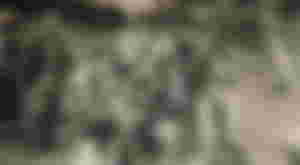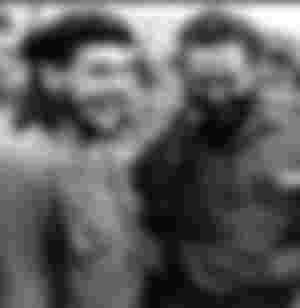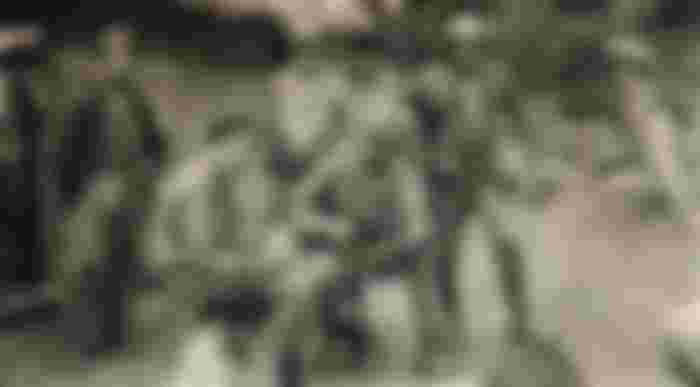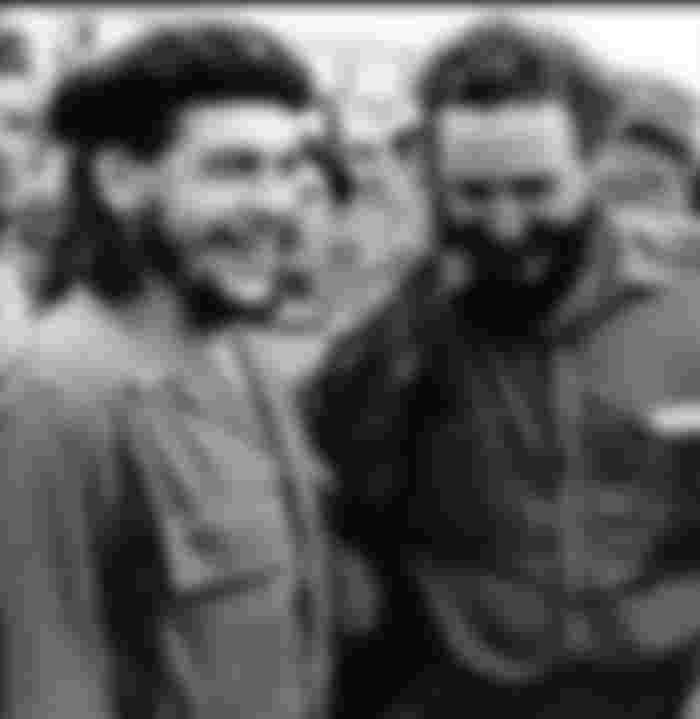
Fidel Castro is one of the fiery pioneers in the world of revolution. The rise of communism in the Western Hemisphere in 1959, with the thumbs up of 11 American presidents, has been able to keep America away from Cuba for almost half a century, with Fidel Castro as its leader.
He is the only head of state after Queen Elizabeth II to have been in power for so long. The head of state of a Caribbean island nation with a population of 11 million, he gained far more fame and international personality than he was supposed to.
Fidel Alejandro Castro Rouge was born on August 13, 1926 in Orient, a province in what was then eastern Cuba. Fidel, the son of gardener Angel Castro and one of his maids, though his father married the maid as his second wife and gave birth to six children. Although Fidel's father was a Spanish citizen by birth, it is unknown at this time what he will do after leaving the post. However, Castro once said that his father had come to Cuba instead of a man of Spanish descent who had been forced into the Spanish army in the late 19th century to undermine the Cuban independence movement and American hegemony.
However, other sources claim that Angel Castro came to Cuba empty-handed. But within a short time, the owner of the orchard went to the forest and also did business with the so-called disliked United Fruit Company, owned by America. When Fidel was very young, his father owned a lot of land.
As a student, Fidel was known to be very vocal from an early age. Even in Cuba, it is common knowledge that he was too arrogant and bigoted from a very young age.
Another popular story about Fidel Castro is that once a priest went on a mountain trip with his classmates. But the priest accidentally fell into a fast-moving river and was likely to drown unless Fidel pulled him ashore. Then they prayed together to the Creator and expressed their gratitude for their good fortune.
From the time he went to law school in Havana in 1945, he began to believe in fate, and within a short time he became deeply involved in radical politics. He also took part in a failed coup in the Dominican Republic to oust dictator Rafael Trujillo. Gradually he became more and more addicted to Cuban politics and began protesting and marching with students before entering the university.

In his university days, he was known as the initiator of the revolution and his tendency towards communism was already known. But in his autobiography in 1986, he said that although he had a good liking for communism, he never joined the party.
Admitting that radical philosophy had a profound effect on his character, he acknowledged that "I had a revolutionary conscience then, I was hardworking, I fought but I was an independent fighter."
After earning a law degree, he worked for the poor for some time and once ran in an election against an orthodox opposition party, but that election was thwarted by a military coup organized by Batista.
In his first response to the Batista government, he challenged the Batista government with a legal appeal claiming that what Batista had done was an affront to the constitution. But his protest was in vain.
After gaining many new followers, Castro attacked the Mona Cada barracks in Santiago de Cuba on July 26, 1953, with a group of his radical students. Many rebels were killed and many were taken prisoner, including Castro himself and his brother Raul Castro.
Castro was sentenced to 15 years in prison for the attack. But the move by Batista after the verdict was perhaps the most wrong move of his political life. Batista released Fidel Castro and his followers in a monarchy after the 1954 presidential election to prove that the rebels had run out of power, under pressure from civil society, and to prove that he was not an oppressive ruler. After his release, Castro went into exile in Mexico, from where he began plotting his return to Cuba. After much effort, an American living in Mexico returned to Cuba with a 71-foot-tall yacht made of wood.
In 1958, he arrived on the Cuban coast with 60 other followers, including Che Guevara, and began his career as a freedom fighter.
Upon his return to the country, he began guerrilla attacks, and Batista was weakened by his stockpile of juices. But Batista did not stop, but instructed his troops not to stop until they had killed Castro. Even in December 1956, word spread around the world that Castro had died. But to everyone's surprise, Castro was interviewed three months later for a few articles that changed his movement and history.

Day after day Batista became disillusioned with the dictatorship and a large number of volunteers joined the revolutionary Castro, and Fidel Castro's party won against Batista.
He has ruled his country with a very strong hand since he entered Havana on January 6, 1959. Standing at the headquarters of the then exiled military dictator Batista, who was ousted from power, he delivered his first speech as a statesman in front of thousands of people. His speech, full of pride and emotion, lasted until dawn and finally the dove of peace flew over Cuba. All the war-weary Cubans who stood in the middle of that hero and listened to his speech that day, and those who sat in front of the TV set, all understood that this young guerrilla leader was going to be their savior. The only word that could be heard from the crowd gathered to listen to Fidel Castro's speech was 'Fidel'.
The people gathered in front of him did not know what plans Fidel Castro had for Cuba. But Castro considered himself the Messiah of his homeland who had the essential power and authority to control Cuba and its people. And so did. He is the one who decides what color Cuban soldiers will wear in Angola, starting with how much sugar production will be. He even sent countless people to jail with his own hands.
But his omnipotent government has not been in power for so long just out of fear of repression. There were many admirers in Cuba and around the world as well as his detractors. Some thought he was a cruel statesman who trampled on the rights and freedoms of the people, while others praised him because they considered him the hero of the revolution of the time.
Even when Castro became seriously ill in 2006, he gave instructions on where and how to get his medical treatment and what to do to carry on his communist revolution.
Source: Dunya News
By handing over power to his brother, Fidel Castro once again faced the wrath of the United States. The United States strongly condemned his decision, saying that the Cuban dictatorship was gaining momentum and that the Cuban people were missing out on another golden opportunity to control their own lives.
But in 2014, then-US President Barack Obama used his executive power to exchange prisoners and build a normal diplomatic relationship between Havana and Washington to end decades of conflict. The secret meeting between the representatives of the two countries lasted for about 18 months and with the help of Pope Francis, the move was finally successful.
Shortly after Barack Obama's much-publicized visit to Cuba in 2016, a long time after a long 6-year visit to Cuba by a ruling US president, Fidel Castro wrote a whimsical essay in defiance of Obama's peace offer, claiming that America needed something to give them. No Cuba.
According to many, Fidel Castro was a self-deprecating, orthodox man who believed in his own destiny. Again, according to many, he was a polymorph, who believed more in pragmatism than in economics and politics. But there is little doubt that Fidel Castro had all the heart and courage needed to be a revolutionary leader.
Fidel Castro, Latin America's most famous and important leader since the War of Independence, which began in the early 19th century. He is the only leader who has changed the history of Cuba since his guru Jose Marti. Castro's revolution affected Cuban society more than any other uprising in Latin America in the 20th century, and that influence lasted for a long time.
At the same time in the history of his reign in Cuba, there has been some social progress, poverty in some places, equality in racism on the one hand, political oppression on the other, some improvement in medical science and in some cases human suffering.
Source: PBS
His personality made him a symbol of revolution and to many of his followers he was a role model. Fidel Castro, the godfather of Venezuelan Hugo Chavez's ideological ideology. But above all, Castro's interest in the United States, and his interest in the United States, is one of the most influential factors in shaping Castro's reign. Ever since Castro embraced communism, Washington has portrayed him as a satanic and oppressive ruler. To remove him from power, the United States has done strange things, such as the 1981 attack on the Bay of Pigs, decades-long economic sanctions, and assassination attempts to assassinate him.
Fidel Castro's opposition to American power turned him into a beacon of resistance in Latin America and elsewhere. His random beard, green clothes and Cuban cigarettes in his hand became a symbol of rebellion all over the world.
Before Castro's rule, Cuba was like a playground for wealthy American tourists. Where inequality between the rich and the poor was easy to see, although Cuba was quite rich compared to other Caribbean states at the time.
Despite having a law degree, Castro had little idea about the economy or government. Even then, Castro wanted to build a different society by improving the education system and reducing Cuba's dependence on sugar and America. He may not have had a clear idea of what kind of society he wanted to build. But he was clear in one thing that he would build a different society than the one in Batista's time.
This leader who made a radical change in Cuban society died on November 25, 2016. I will not go into the debate on how right he was in his ideology or what his actions were wrong or right. Wherever this world-pleasing statesman is, be well, this is all we want.

